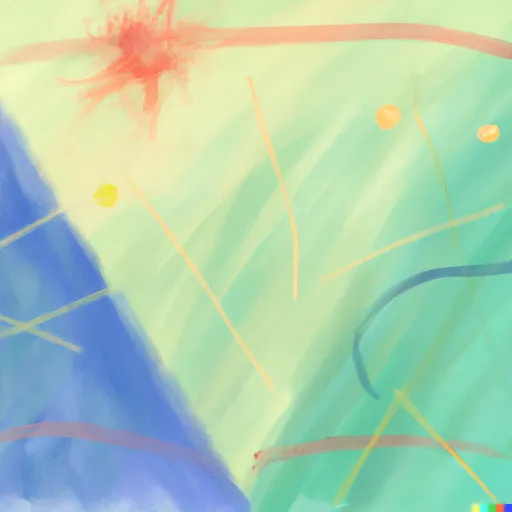Case Study: Oleksandra

Breaking Barriers: Changing Career Path From IT Advocacy in Marketing to Software Development
Introduction:
Oleksandra is a software developer from Nuremberg in Germany, originally from Ukraine. She starts her new job in Germany a few weeks before Russian invasion of Ukraine in 2022. She has changed her path a marketing professional in Corporate Social Responsibility field in Microsoft to Net Software Development. Her role at Microsoft was to manage several projects to empower NGOs, vulnerable youth with IT Technologies project in Black Sea Region. Oleksandra engaged Microsoft partners companies, Microsoft employees and young IT professionals to empower NGO management and beneficiaries with Microsoft technologies including remote work promotion. As a person with disabilities, she always knew that remote work and IT could improve inclusion and diversity. She aims to realize her full potential as a social activist and a software developer through innovation.
Motivation:
Oleksandra’s motivation for starting this project comes from her own experience. When she was 16 years old, she has started to volunteer for Charitable foundation AIK organised by youth with severe physical impairment. These volunteering pushed Oleksandra to prove to herself and together with friends she was capable of achieving great things, and that she could not be defined by her disability. The aim was to provide free internet access and start digital literacy project for members of AIK, empower them to realize their potential in studying and entering job market in 2000.
Support Received:
Although AIK faced some obstacles and scepticism from her society and friends at the beginning of her project, Oleksandra has received support from friends and family as they have seen the positive impact her work has had on others. Over decade Oleksandra received all recourses as Microsoft manager to lead digital literacy and IT project. All these projects helped in vulnerable groups inclusion in community development throughout innovation. By changing her career path Oleksandra received great support from software developers’ community thanks to build strong networking and her own ability to be goal oriented.
Objectives:
Oleksandra aimed to be a role model for females, and especially with disability, to build a carrier as IT developer or switch her carrier from non tech backgrounds at risk of social exclusion or in need of support. Being employed as IT developer at Germn market she started to volunteer in Mentoring.org where different professionals around the world could play both mentor and mentee role at mentorship session. These sessions could be given at local language at any market by locals and expats. Oleksandra believes through her participation she can help change people’s perceptions and attitudes towards many females, especially Ukrainian women-refugees with disability.
Barriers:
Oleksandra has faced several barriers while finding a job. One of the biggest challenges has been the lack of understanding requirements and rules for job seekers at German IT market. Oleksandra has had to rely solely on her own searching skills. She had to build her professional network from greenfield in Germany with no meeting in person, and this has negative impact at results. Another challenge has been the personal stories without any carrier path sample with similar precondemns, and the difficulty of measuring the KPI. Oleksandra has also faced doubts about achieving her goals and worries that her job seeking project as a female software developer with disability and without IT background at foreign labour market would not be achieved.
Lessons Learnt:
Through her project, Oleksandra has learnt several valuable lessons. She has learnt the importance of focusing on goal and researching the German labour market requirements, and the power of networking with local professional community to achieve a goal. She has learnt that even small talks or informal chat can have a big impact, and that every step matters. Finally, that there is still much work to be done in terms female in IT representation, especially refugees with disability representation and inclusion, and that she no matter how big is her role, it is important to move forward.
Impact:
The impact Oleksandra’s job seeking project has been positive on the target community and the wider society. Her project has provided awareness among Ukrainian women-refugees with disabilities. Her path helped to build networking with local professionals in different fields e.g., marketing, HR, IT management and software development change people’s perceptions and attitudes towards female-refugees professional with disability.
Conclusion:
Oleksandra’s project for inclusion and social change highlights the emergence of a new entrepreneurship phenomenon known as digital social entrepreneurship. Digital social entrepreneurship refers to the use of digital technologies to address social and environmental challenges. Oleksandra’s use of the social network mentoringClub.org and Facebook groups to make for people with disabilities and those at risk of social exclusion is a clear example of digital social entrepreneurship.
Digital social entrepreneurship has been found to be driven by factors such as experiences in social organisations, access to digital technologies, and personal characteristics such as empathy and social consciousness. Oleksandra’s motivation for engaging local professional community, which arose from her own experience with disability and the desire to create informational campaign for Ukrainian women-refugees with and without disability facing similar challenges at German labour maru, aligns with these findings.
However, despite the potential impact of digital social entrepreneurship, social changers like Oleksandra often face barriers such as a lack of support from potential employers and difficulty measuring the impact of their work.
In summary, Oleksandra’s project is an inspiring example of digital social entrepreneurship that addresses social and environmental challenges. Oleksandra’s project aligns with the United Nations’ Sustainable Development Goals (SDGs), particularly SDG 10, which focuses on reducing inequality. The project has faced barriers, but Oleksandra has learnt valuable lessons and has made a positive impact on the target community and the wider society. Her work is a contribution to the field of digital social entrepreneurship and serves as an inspiration to others who want to make a difference in the world.
